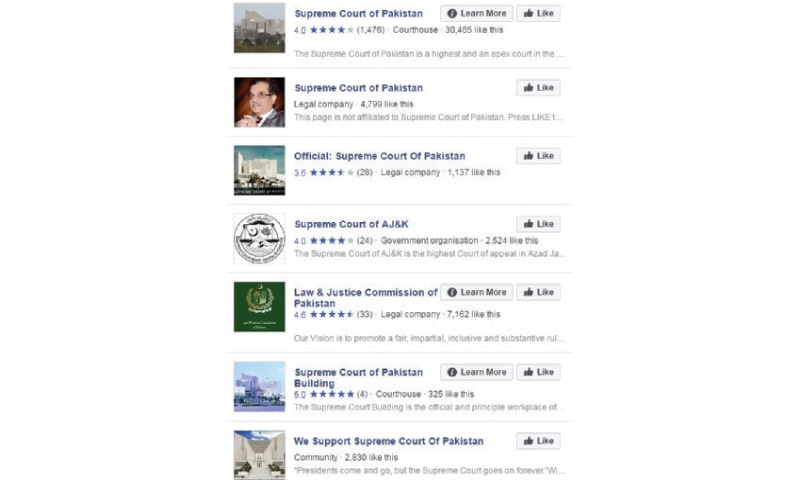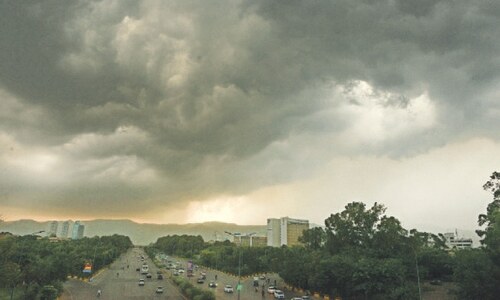ISLAMABAD: The Supreme Court of Pakistan on Wednesday directed the Pakistan Telecommunication Authority (PTA) and Federal Investigation Agency (FIA) to block all fake pages and websites being run in its name on social media.
In a statement issued on Wednesday, the Supreme Court said it did not operate or maintain any Facebook account, page or any other identity on any other social networking site.
On Facebook, one of the largest social media networks, nearly two dozen pages being run in the name of the Supreme Court can be accessed.
PTA spox says not aware of court orders; over half a dozen pages linked to apex court accessible on Facebook
‘Official Supreme Court of Pakistan’, ‘We Love Supreme Court of Pakistan’, ‘Supreme Court of Pakistan Haqeeqi,’ ‘Supreme Court of Pakistan is the best’, and ‘History of Supreme Court of Pakistan’ are among half a dozen pages lurking on the internet.
These pages contain various kinds of posts, such as news clippings, private messages to chief justices, and pictures of former judges. These pages also have thousands of followers.
There are also nearly a dozen Facebook accounts that link to pages of former chief justice, Iftikhar Mohammad Chaudhry.
In its statement, the apex court also directed the concerned agencies, PTA and FIA, to “take legal action against the delinquents in accordance with law”.
But a PTA spokesperson said the regulatory body was not aware of the SC’s directions. “However, in general, the authority acts against fake accounts. If a user registers a complaint with the PTA themselves, it is a more effective way to deal with the problem,” he said.
Similar orders were also issued in November last year, when former chief justice Anwar Zaheer Jamali directed the authorities to block fake Facebook accounts associated with him. He ordered the concerned agencies to take action against those operating fake accounts in his name under the relevant laws.
Last year, parliament passed the controversial Prevention of Electronic Crimes Bill, 2016 to help law enforcement agencies counter the rise in cybercrimes such as cyber stalking, fake and stolen identities on Facebook, Twitter and other social media platforms.
The law made to counter cybercrimes, however, also attracted criticism from civil society organisations, who maintained that the law curbs human rights, criminalises conduct that should not be criminalised and gives overreaching powers to law enforcement agencies.
Published in Dawn, June 22nd, 2017















































Dear visitor, the comments section is undergoing an overhaul and will return soon.